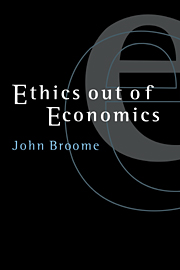Book contents
15 - The value of a person
Published online by Cambridge University Press: 12 November 2009
Summary
The basic intuition
Many people have the intuition that adding a person to the world is not valuable in itself, even if the person would enjoy a good life. If a new person will make such demands on the world's resources that her existence will do harm to people already alive, that is a reason against creating her. On the other hand, if a couple want a child, that is a reason for them to have one. But there is no reason that arises from the person's own interest. If a person could be created, and would lead a good life if she was created, the fact that her life would be good is not a reason for creating her. The existence of a person is ethically neutral in itself. I shall call this ‘the basic intuition’. It must be qualified. If a person's life would be bad, were she to be created, that is a reason against creating her; a person's existence is ethically neutral only if her life would be good. Jan Narveson says, ‘We are … neutral about making happy people.’ That is the basic intuition.
For instance, suppose a couple are wondering whether to have a child. Suppose there is no doubt their child's life would be good if they had one. But suppose the couple decide their own lives will be better on balance if they remain childless, and because of that they do so. Few people would think they are acting wrongly. It is not that we think the couple have a reason to have a child – her life would be good – that can justifiably be outweighed by their own good.
- Type
- Chapter
- Information
- Ethics out of Economics , pp. 228 - 242Publisher: Cambridge University PressPrint publication year: 1999
- 1
- Cited by



